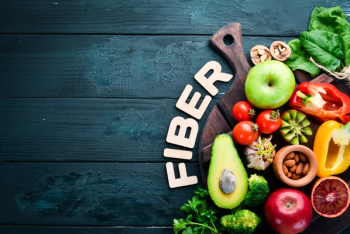
Plant protein's flavor masking challenges
Reducing the earthy, bitter, and often chalky off-notes of different plant proteins is more complicated than it seems.
Plant-based proteins are quickly taking over the food and supplement market. As much as consumers are interested in protein-rich foods and beverages, the unpleasant taste of proteins derived from plant sources is often hard to endure. Reducing the earthy, bitter, and often chalky off-notes of different plant proteins is more complicated than it seems. A number of manufacturers are committed to experimenting with various flavor masking solutions to overcome the challenges associated with natural and organic flavor-masking agents.
The Basics of Flavor Masking
The commercial success of nutritional supplements depends heavily on their flavor profiles. Consumers reject products that have an overwhelmingly unpleasant taste. Unpleasant tastes are often associated with proteins derived from plant sources with varying amino acid profiles. Rice, pea, and chia are all very popular sources of plant-derived proteins, but they all have unique, inherent off-tastes, bitter notes, and vegetative aftertastes.
Flavoring and masking agents are key tools for suppressing the inherent sensory properties of nutritional supplements. The important sensory attributes of flavor masking agents are a balanced taste, rapid impact, and minimal aftertaste.
Why Flavor Masking Can Be Tricky
One of the major challenges in flavor masking is finding solutions that maintain the natural, clean-label positioning of a brand. Natural, organic solutions are difficult to find compared to hassle-free, artificial flavoring options. Sugar-free, non-artificial sweeteners such as stevia extract or monk fruit extract have their own flavor characteristics that go hand in hand with their inherent sweetening properties-and which make neutralizing the off-notes of the sweetener as well as the active proteins a challenge, too.
Masking multidimensional off-notes calls for a multi-step approach. For example, chocolate pea protein will still have an inherent pea taste. But adding an underlying fudge or caramel flavor to chocolate will add another layer of complexity to further strengthen the flavor and overcome the unwanted off-notes.
Similarly, some natural flavor components can act as a tool to blend and strengthen the core flavor profiles while muting the off-notes and reducing or even entirely eliminating any lingering aftertaste. FDA defines a natural flavor as “the essential oil, oleoresin, essence or extractive, protein hydrolysate, distillate, or any product of roasting, heating or enzymolysis, which contains the flavoring constituents derived from a spice, fruit or fruit juice, vegetable or vegetable juice, edible yeast, herb, bark, bud, root, leaf or similar plant material, meat, seafood, poultry, eggs, dairy products, or fermentation products thereof, whose significant function in food is flavoring rather than nutritional.” Naturally derived fibers, especially oat, work very well at masking off-notes/aftertastes, especially the unpleasant chemical notes of naturally derived sweeteners such as stevia. Plant-based “milk” powders, such as almond milk or cashew milk, work well as a dairy alternative to not only mask off-tastes of plant proteins but to also create more intense and comprehensive flavor profiles.
These masking agents can be multifaceted and can be specifically crafted to overcome many issues, whether it be to mask the bitter notes of caffeine, the bad smell and taste of certain vitamins and minerals, or to simply help to reduce the earthy, green notes from many vegetable proteins.
A Complex Experience
A consumer’s flavor experience does not rest solely on the actual product taste; it also involves the smell and texture of the product. A combination of all three factors determines the consumer’s experience.
After finding the perfect masking agent, the key to the perfect formulation is not overdoing it. Too much masking will “eat” the natural flavor completely. Consumers want to be able to taste the inherent plant flavors to some extent. Mask the flavor too much and they’ll simply deem the product as inauthentic. The more experience the manufacturer has, the more knowledge they’ll have about using flavor masking to the most of its ability to give the consumer the best final product.
Max Timko is the director of marketing for
Newsletter
From ingredient science to consumer trends, get the intel you need to stay competitive in the nutrition space—subscribe now to Nutritional Outlook.





